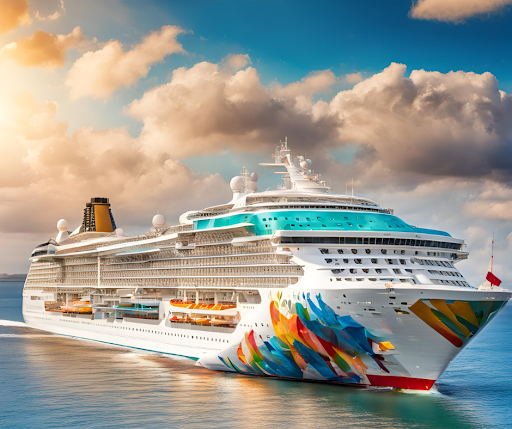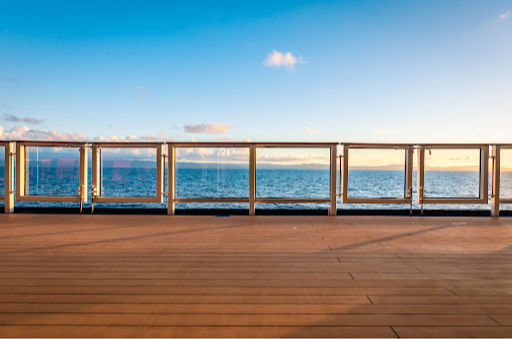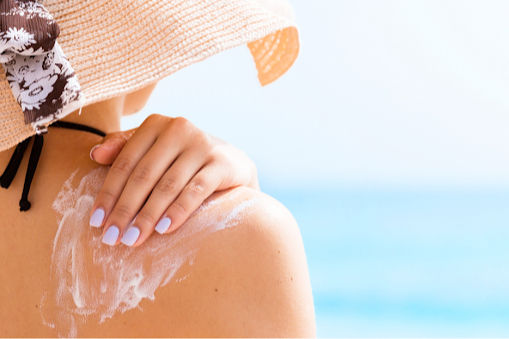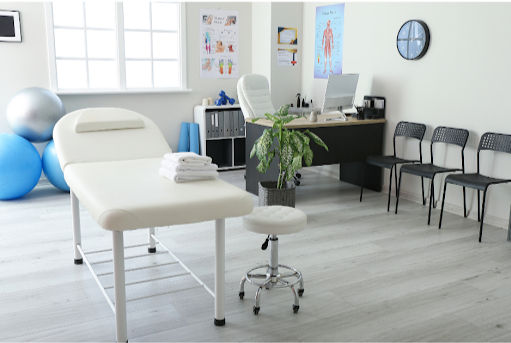Cruise Safety and Health: Staying Healthy and Safe While at Sea
- Kim Dowling

- Jun 13, 2024
- 4 min read
Setting sail on a cruise is an adventure filled with excitement, relaxation, and the promise of far-off destinations. But, like any travel experience, it's essential to stay aware of safety protocols and health precautions to ensure your voyage remains smooth and enjoyable. In this guide, we’ll explore the measures cruise lines implement for passenger safety, along with tips for staying healthy and addressing common medical issues onboard.

Safety Protocols on Cruise Ships
Cruise lines prioritize passenger safety through a range of stringent protocols and procedures. These measures ensure that everyone on board can relax and enjoy their vacation without worry.
1. Comprehensive Safety Drills
Before setting sail, all passengers participate in mandatory safety drills, often called muster drills. These drills familiarize guests with emergency procedures, evacuation routes, and the location of life jackets and muster stations.
2. Advanced Security Measures
Cruise ships are equipped with sophisticated security systems, including surveillance cameras and onboard security personnel. These measures help monitor and manage any suspicious activities, ensuring a secure environment for all passengers.
3. Health Screenings and Medical Facilities
To prevent illness outbreaks, cruise lines conduct thorough health screenings before boarding. Onboard medical centers staffed with qualified healthcare professionals are available 24/7 to handle medical emergencies and routine care.

4. Hygiene and Sanitation Practices
Cruise ships follow rigorous cleaning protocols to maintain high standards of hygiene. Common areas, dining venues, and cabins are regularly sanitized, and hand sanitizer stations are strategically placed throughout the ship.
5. Fire Safety Measures
Ships are equipped with advanced fire detection and suppression systems, including smoke detectors, sprinklers, and fire extinguishers. Crew members undergo extensive fire safety training to respond effectively in case of an emergency.

Health Precautions on Cruises
Staying healthy at sea requires a combination of cruise line precautions and personal vigilance. Here are some key health measures to keep in mind.
1. Vaccinations and Health Certifications
Check with your cruise line about required vaccinations and health certifications before your trip. Staying up-to-date with routine vaccinations and any additional requirements can prevent the spread of infectious diseases.
2. Hand Hygiene
Frequent hand washing is crucial, especially before meals and after using the restroom. Utilize hand sanitizer stations available throughout the ship to minimize the risk of infections.
3. Food and Water Safety
Most cruise lines adhere to strict food safety standards. Stick to bottled water, especially when docked at foreign ports, and choose freshly cooked meals to avoid foodborne illnesses.
[Insert Image: Hand sanitizer station on a cruise ship]
4. Motion Sickness Prevention
Even the most luxurious cruise ships can experience rough seas. To combat motion sickness, consider over-the-counter remedies, acupressure bands, or natural remedies like ginger. Booking a cabin in the middle of the ship, where there's less movement, can also help.
5. Sun Protection
Cruises often involve a lot of time outdoors. Protect yourself from harmful UV rays by wearing sunscreen, sunglasses, and hats. Stay hydrated and seek shade during peak sun hours.

6. Staying Active and Hydrated
Many cruise ships offer fitness centers, jogging tracks, and various sports activities. Keeping active helps maintain your energy levels and overall well-being. Remember to drink plenty of water, especially in hot climates, to stay hydrated.
Tips for Dealing with Common Medical Issues
Despite the best precautions, medical issues can arise. Here’s how to handle some common concerns while cruising.
1. Seasickness
If you start feeling seasick, move to the ship’s center where there's less motion, get some fresh air, and stay hydrated. Over-the-counter medications like Dramamine can provide quick relief.
2. Sunburn
In case of sunburn, apply aloe vera or a soothing lotion to affected areas. Stay out of the sun until healed, and keep the skin moisturized to aid recovery.
[Insert Image: Aloe vera gel for sunburn relief]
3. Minor Injuries
For cuts, scrapes, or bruises, visit the onboard medical center for proper cleaning and bandaging. Most ships are equipped to handle minor injuries and provide necessary first aid supplies.
4. Respiratory Issues
If you develop a cold or respiratory issue, use over-the-counter medications and rest. The onboard medical team can offer advice and treatment if symptoms persist or worsen.
5. Gastrointestinal Problems
Digestive issues can occur, often due to rich foods or unfamiliar cuisine. Drink plenty of fluids, stick to bland foods, and consider anti-diarrheal or antacid medications if necessary.

6. Pre-existing Conditions
If you have a pre-existing medical condition, carry a sufficient supply of your medications and inform the cruise line in advance. Bring a doctor’s note and a list of your medications in case you need a refill or medical attention during the trip.
Conclusion
Cruising is a fantastic way to explore the world while enjoying luxurious amenities and activities. By understanding and adhering to the safety protocols and health precautions implemented by cruise lines, and by taking personal steps to stay healthy, you can ensure your journey is safe, enjoyable, and memorable.
Bon voyage, and may your time at sea be filled with adventure and well-being!

By following these tips and understanding the robust safety measures in place, you can focus on the fun and relaxation that a cruise vacation promises. Here’s to smooth sailing and good health on your next ocean adventure!





Comments